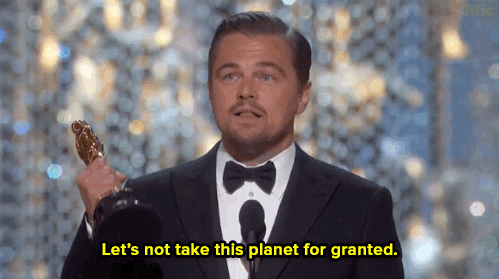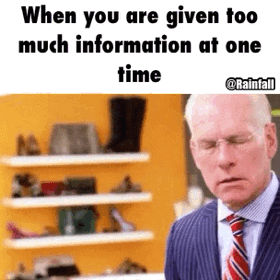Write Simpler, Understand More
Jargon. Wordiness. Unnecessary flowery, or technical language can make any reader switch off about three words into any sentence. When you’re excluded by vocabulary that you have to work to figure out, the task of reading becomes tedious, boring; spare a thought, please, for language learners dealing with your clever words rather than plain speech.
GIF via Giphy
As any person working with words knows, it is important to consider your audience. You have to extrapolate their interpretation of your message in order to write effectively enough to garner maximum interest in your work. Or, you know, think about what you’re saying so your words are inclusive and interesting for your readers. So, why do those in certain circles use technical language that isolate potential readers? Why, if you’re trying to get your point across, is it necessary to use plain, simple language?

GIF via Giphy
Getting abstract
Unless you’re part of a scientific community, the word abstract might conjure up images of art that make you tilt your head from side to side trying to work out what the piece is about. But for a scientist of any flavour, an abstract is a brief summary of the research carried out, that gives you some idea of what the report you’re reading is going to be about.
Students from the Karolinska Institute in Sweden carried out a study into the readability of biomedical papers by downloading more than 700,000 scientific abstracts and running them through a couple of tests (number of syllables per word and predefined ‘difficult’ words). Their conclusion was that the readability of scientific papers in recent years is declining, with most papers pitching English that was beyond graduate-level. How do those of us speaking in layman's terms stand a chance of understanding?
Across the board
It isn’t just biomedical scientists that use exclusive, elaborate language when they write up their work. If you’re not an economist, seeing the phrases cost-benefit analysis or conspicuous consumption in an article might leave you cross-eyed. If you’re not a geologist, seeing the word cleavage in the opening paragraphs of a research paper might make you titter unnecessarily (it does not mean what you’re thinking, we promise).
Now, there are many possible arguments defending such language. It’s not intentional, because when you’re in the middle of a subject you don’t necessarily consider a readership outside of it (geeking is fun, after all). If you’ve put the effort in to learn a subject, why shouldn’t you use all the flowery technical terms that you’ve learned into your own vocabulary? And besides, every day’s a school day, so why shouldn’t a casual reader put in the effort to expand their knowledge by learning a few more terms?

GIF via Giphy
Going native
Another argument defending difficult language may be, that particularly in science, many of the writers of research papers are non-native English speakers. We spoke recently about the bias of English in science, and there’s a couple of things to consider here. One, a non-native speaker is used to using the vocabulary of their field, so may not realise there is a simpler way to say what they mean. And two, for those who want to appear native, or more fluent than they really are, using difficult language beyond their own comprehension is a tactic to try to fit in.
Learning a new language? Check out our free placement test to see how your level measures up!
And lastly, not that we’re pointing the finger of blame at any particular industry (...), but there are some of us who deliberately use difficult, exclusive language to bewilder those not in the know, to belittle them, and then are rude enough to call the rest of us stupid. But if we point out the acronyms PEBKAC (Problem Exists Between Keyboard And Chair) and PICNIC (Problem In Chair, Not In Computer), we’re sure you’ll know who we’re thinking about.

GIF via Giphy
So.
Expanding vocabulary is good, great even; we are all about language, so of course adding new words to those you already use is good. But if we want to have a wider understanding of subjects that are important yet have complex parts to them that need simplifying, this is when using plain language becomes essential. And that doesn’t mean dumbing things down, either, before anyone objects.
We talk about climate change, and we say things like CFCs rather than chlorofluorocarbons, or human-caused rather than anthropogenic, because we want to get this very important message across. We don’t use language that shuts people out, because we want everyone to be involved; this is our planet and future we’re discussing, so everyone needs to play a part.
Dismounting from our soapbox to summarise this, inclusive language means equal footing for everyone. The key to understanding one another is communication; but how can we communicate effectively, when we’re using language that others don’t understand?



